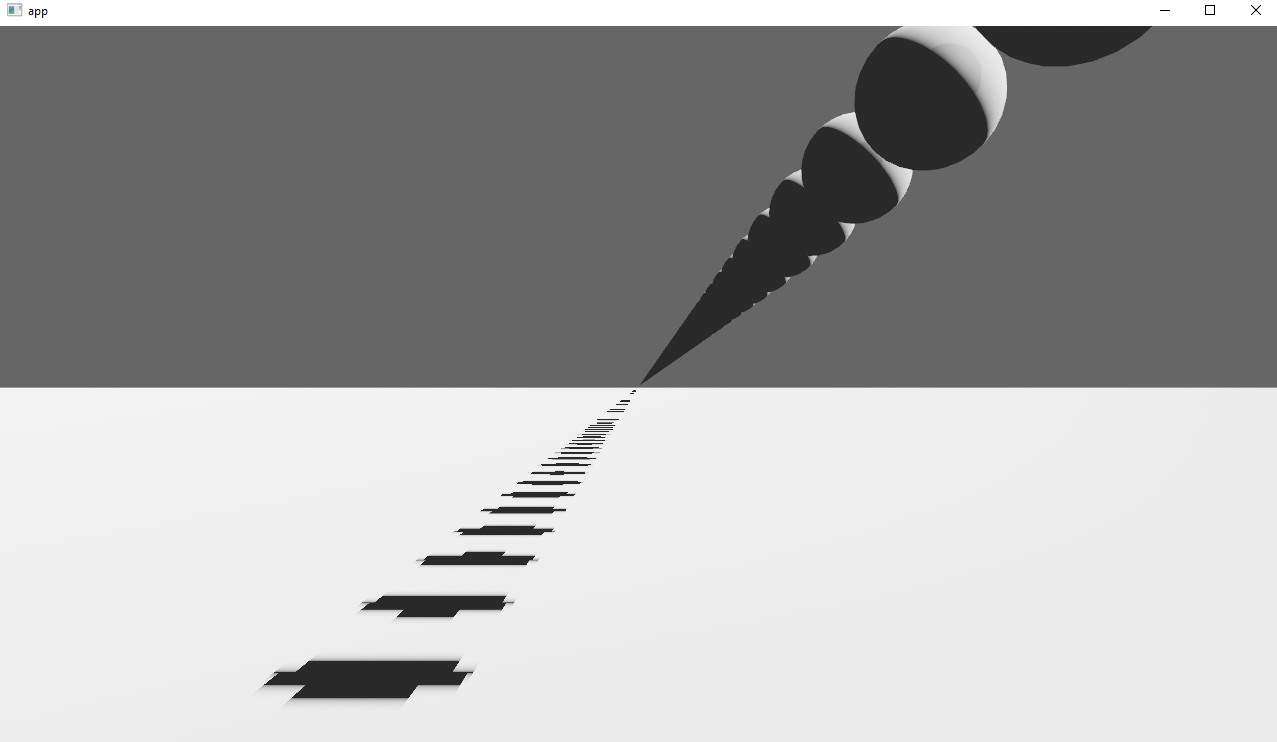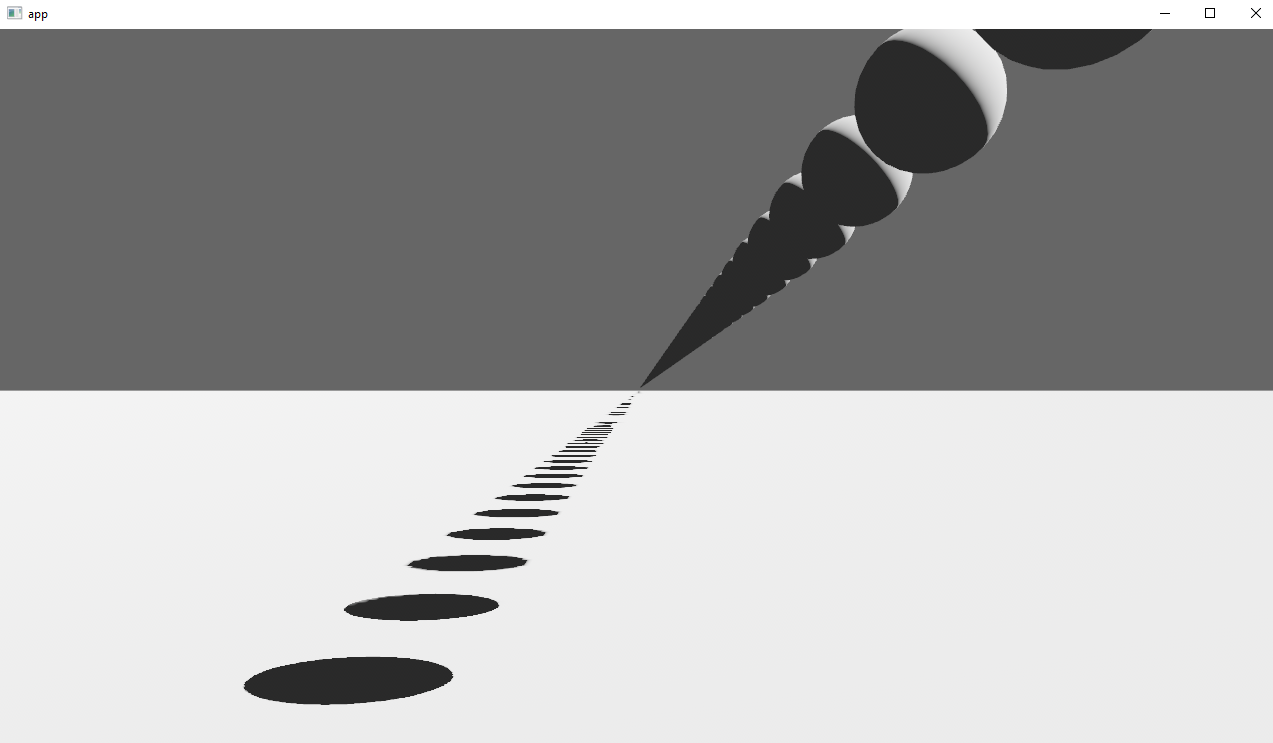# Objective
- Improve antialiasing for non-point light shadow edges.
- Very partially addresses
https://github.com/bevyengine/bevy/issues/3628.
## Solution
- Implements "The Witness"'s shadow map sampling technique.
- Ported from @superdump's old branch, all credit to them :)
- Implements "Call of Duty: Advanced Warfare"'s stochastic shadow map
sampling technique when the velocity prepass is enabled, for use with
TAA.
- Uses interleaved gradient noise to generate a random angle, and then
averages 8 samples in a spiral pattern, rotated by the random angle.
- I also tried spatiotemporal blue noise, but it was far too noisy to be
filtered by TAA alone. In the future, we should try spatiotemporal blue
noise + a specialized shadow denoiser such as
https://gpuopen.com/fidelityfx-denoiser/#shadow. This approach would
also be useful for hybrid rasterized applications with raytraced
shadows.
- The COD presentation has an interesting temporal dithering of the
noise for use with temporal supersampling that we should revisit when we
get DLSS/FSR/other TSR.
---
## Changelog
* Added `ShadowFilteringMethod`. Improved directional light and
spotlight shadow edges to be less aliased.
## Migration Guide
* Shadows cast by directional lights or spotlights now have smoother
edges. To revert to the old behavior, add
`ShadowFilteringMethod::Hardware2x2` to your cameras.
---------
Co-authored-by: IceSentry <c.giguere42@gmail.com>
Co-authored-by: Daniel Chia <danstryder@gmail.com>
Co-authored-by: robtfm <50659922+robtfm@users.noreply.github.com>
Co-authored-by: Brandon Dyer <brandondyer64@gmail.com>
Co-authored-by: Edgar Geier <geieredgar@gmail.com>
Co-authored-by: Robert Swain <robert.swain@gmail.com>
Co-authored-by: Elabajaba <Elabajaba@users.noreply.github.com>
Co-authored-by: IceSentry <IceSentry@users.noreply.github.com>
# Objective
operate on naga IR directly to improve handling of shader modules.
- give codespan reporting into imported modules
- allow glsl to be used from wgsl and vice-versa
the ultimate objective is to make it possible to
- provide user hooks for core shader functions (to modify light
behaviour within the standard pbr pipeline, for example)
- make automatic binding slot allocation possible
but ... since this is already big, adds some value and (i think) is at
feature parity with the existing code, i wanted to push this now.
## Solution
i made a crate called naga_oil (https://github.com/robtfm/naga_oil -
unpublished for now, could be part of bevy) which manages modules by
- building each module independantly to naga IR
- creating "header" files for each supported language, which are used to
build dependent modules/shaders
- make final shaders by combining the shader IR with the IR for imported
modules
then integrated this into bevy, replacing some of the existing shader
processing stuff. also reworked examples to reflect this.
## Migration Guide
shaders that don't use `#import` directives should work without changes.
the most notable user-facing difference is that imported
functions/variables/etc need to be qualified at point of use, and
there's no "leakage" of visible stuff into your shader scope from the
imports of your imports, so if you used things imported by your imports,
you now need to import them directly and qualify them.
the current strategy of including/'spreading' `mesh_vertex_output`
directly into a struct doesn't work any more, so these need to be
modified as per the examples (e.g. color_material.wgsl, or many others).
mesh data is assumed to be in bindgroup 2 by default, if mesh data is
bound into bindgroup 1 instead then the shader def `MESH_BINDGROUP_1`
needs to be added to the pipeline shader_defs.
Fixes issue mentioned in PR #8285.
_Note: By mistake, this is currently dependent on #8285_
# Objective
Ensure consistency in the spelling of the documentation.
Exceptions:
`crates/bevy_mikktspace/src/generated.rs` - Has not been changed from
licence to license as it is part of a licensing agreement.
Maybe for further consistency,
https://github.com/bevyengine/bevy-website should also be given a look.
## Solution
### Changed the spelling of the current words (UK/CN/AU -> US) :
cancelled -> canceled (Breaking API changes in #8285)
behaviour -> behavior (Breaking API changes in #8285)
neighbour -> neighbor
grey -> gray
recognise -> recognize
centre -> center
metres -> meters
colour -> color
### ~~Update [`engine_style_guide.md`]~~ Moved to #8324
---
## Changelog
Changed UK spellings in documentation to US
## Migration Guide
Non-breaking changes*
\* If merged after #8285
# Objective
- Improve ergonomics / documentation of cascaded shadow maps
- Allow for the customization of the nearest shadowing distance.
- Fixes#7393
- Fixes#7362
## Solution
- Introduce `CascadeShadowConfigBuilder`
- Tweak various example cascade settings for better quality.
---
## Changelog
- Made examples look nicer under cascaded shadow maps.
- Introduce `CascadeShadowConfigBuilder` to help with creating `CascadeShadowConfig`
## Migration Guide
- Configure settings for cascaded shadow maps for directional lights using the newly introduced `CascadeShadowConfigBuilder`.
Co-authored-by: Robert Swain <robert.swain@gmail.com>
# Objective
I found several words in code and docs are incorrect. This should be fixed.
## Solution
- Fix several minor typos
Co-authored-by: Chris Ohk <utilforever@gmail.com>
Co-authored-by: Robert Swain <robert.swain@gmail.com>
# Objective
Implements cascaded shadow maps for directional lights, which produces better quality shadows without needing excessively large shadow maps.
Fixes#3629
Before

After

## Solution
Rather than rendering a single shadow map for directional light, the view frustum is divided into a series of cascades, each of which gets its own shadow map. The correct cascade is then sampled for shadow determination.
---
## Changelog
Directional lights now use cascaded shadow maps for improved shadow quality.
## Migration Guide
You no longer have to manually specify a `shadow_projection` for a directional light, and these settings should be removed. If customization of how cascaded shadow maps work is desired, modify the `CascadeShadowConfig` component instead.
# Objective
fix error with shadow shader's spotlight direction calculation when direction.y ~= 0
fixes#7152
## Solution
same as #6167: in shadows.wgsl, clamp 1-x^2-z^2 to >= 0 so that we can safely sqrt it
# Objective
- The #7064 PR had poor performance on an M1 Max in MacOS due to significant overuse of registers resulting in 'register spilling' where data that would normally be stored in registers on the GPU is instead stored in VRAM. The latency to read from/write to VRAM instead of registers incurs a significant performance penalty.
- Use of registers is a limiting factor in shader performance. Assignment of a struct from memory to a local variable can incur copies. Passing a variable that has struct type as an argument to a function can also incur copies. As such, these two cases can incur increased register usage and decreased performance.
## Solution
- Remove/avoid a number of assignments of light struct type data to local variables.
- Remove/avoid a number of passing light struct type variables/data as value arguments to shader functions.
# Objective
add spotlight support
## Solution / Changelog
- add spotlight angles (inner, outer) to ``PointLight`` struct. emitted light is linearly attenuated from 100% to 0% as angle tends from inner to outer. Direction is taken from the existing transform rotation.
- add spotlight direction (vec3) and angles (f32,f32) to ``GpuPointLight`` struct (60 bytes -> 80 bytes) in ``pbr/render/lights.rs`` and ``mesh_view_bind_group.wgsl``
- reduce no-buffer-support max point light count to 204 due to above
- use spotlight data to attenuate light in ``pbr.wgsl``
- do additional cluster culling on spotlights to minimise cost in ``assign_lights_to_clusters``
- changed one of the lights in the lighting demo to a spotlight
- also added a ``spotlight`` demo - probably not justified but so reviewers can see it more easily
## notes
increasing the size of the GpuPointLight struct on my machine reduces the FPS of ``many_lights -- sphere`` from ~150fps to 140fps.
i thought this was a reasonable tradeoff, and felt better than handling spotlights separately which is possible but would mean introducing a new bind group, refactoring light-assignment code and adding new spotlight-specific code in pbr.wgsl. the FPS impact for smaller numbers of lights should be very small.
the cluster culling strategy reintroduces the cluster aabb code which was recently removed... sorry. the aabb is used to get a cluster bounding sphere, which can then be tested fairly efficiently using the strategy described at the end of https://bartwronski.com/2017/04/13/cull-that-cone/. this works well with roughly cubic clusters (where the cluster z size is close to the same as x/y size), less well for other cases like single Z slice / tiled forward rendering. In the worst case we will end up just keeping the culling of the equivalent point light.
Co-authored-by: François <mockersf@gmail.com>
# Objective
- Builds on top of #4901
- Separate out PBR lighting, shadows, clustered forward, and utils from `pbr.wgsl` as part of making the PBR code more reusable and extensible.
- See #3969 for details.
## Solution
- Add `bevy_pbr::utils`, `bevy_pbr::clustered_forward`, `bevy_pbr::lighting`, `bevy_pbr::shadows` shader imports exposing many shader functions for external use
- Split `PI`, `saturate()`, `hsv2rgb()`, and `random1D()` into `bevy_pbr::utils`
- Split clustered-forward-specific functions into `bevy_pbr::clustered_forward`, including moving the debug visualization code into a `cluster_debug_visualization()` function in that import
- Split PBR lighting functions into `bevy_pbr::lighting`
- Split shadow functions into `bevy_pbr::shadows`
---
## Changelog
- Added: `bevy_pbr::utils`, `bevy_pbr::clustered_forward`, `bevy_pbr::lighting`, `bevy_pbr::shadows` shader imports exposing many shader functions for external use
- Split `PI`, `saturate()`, `hsv2rgb()`, and `random1D()` into `bevy_pbr::utils`
- Split clustered-forward-specific functions into `bevy_pbr::clustered_forward`, including moving the debug visualization code into a `cluster_debug_visualization()` function in that import
- Split PBR lighting functions into `bevy_pbr::lighting`
- Split shadow functions into `bevy_pbr::shadows`